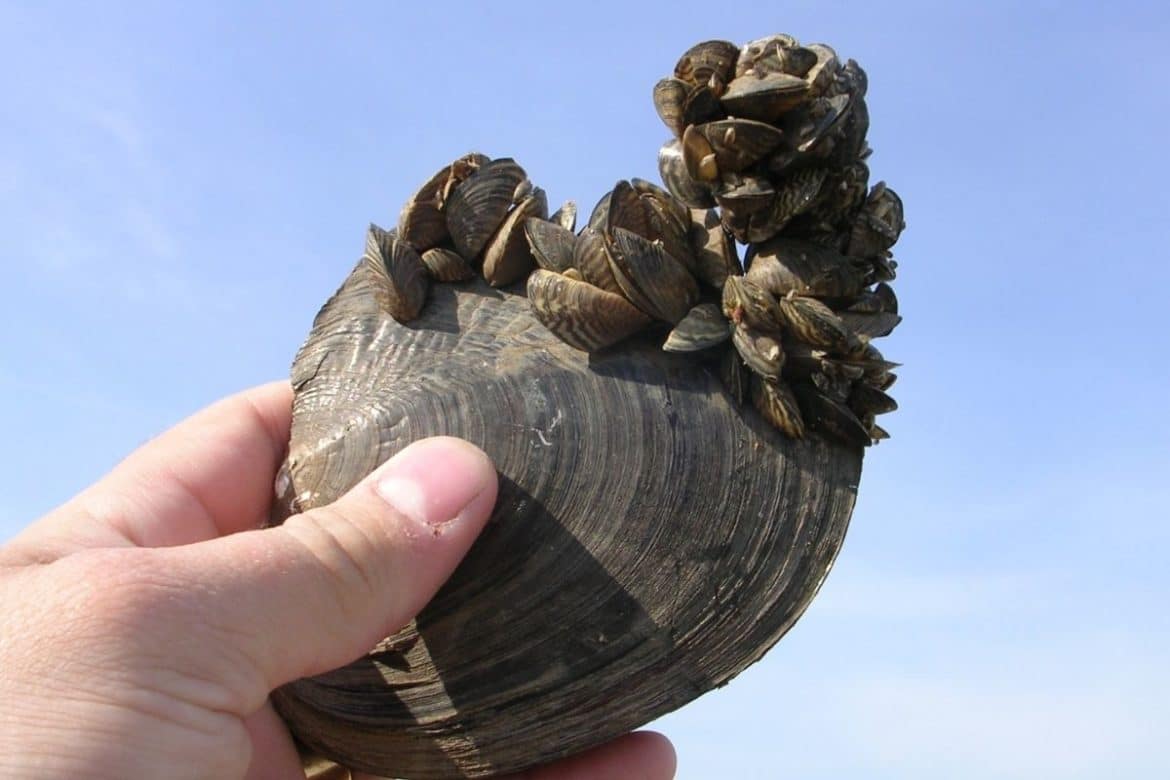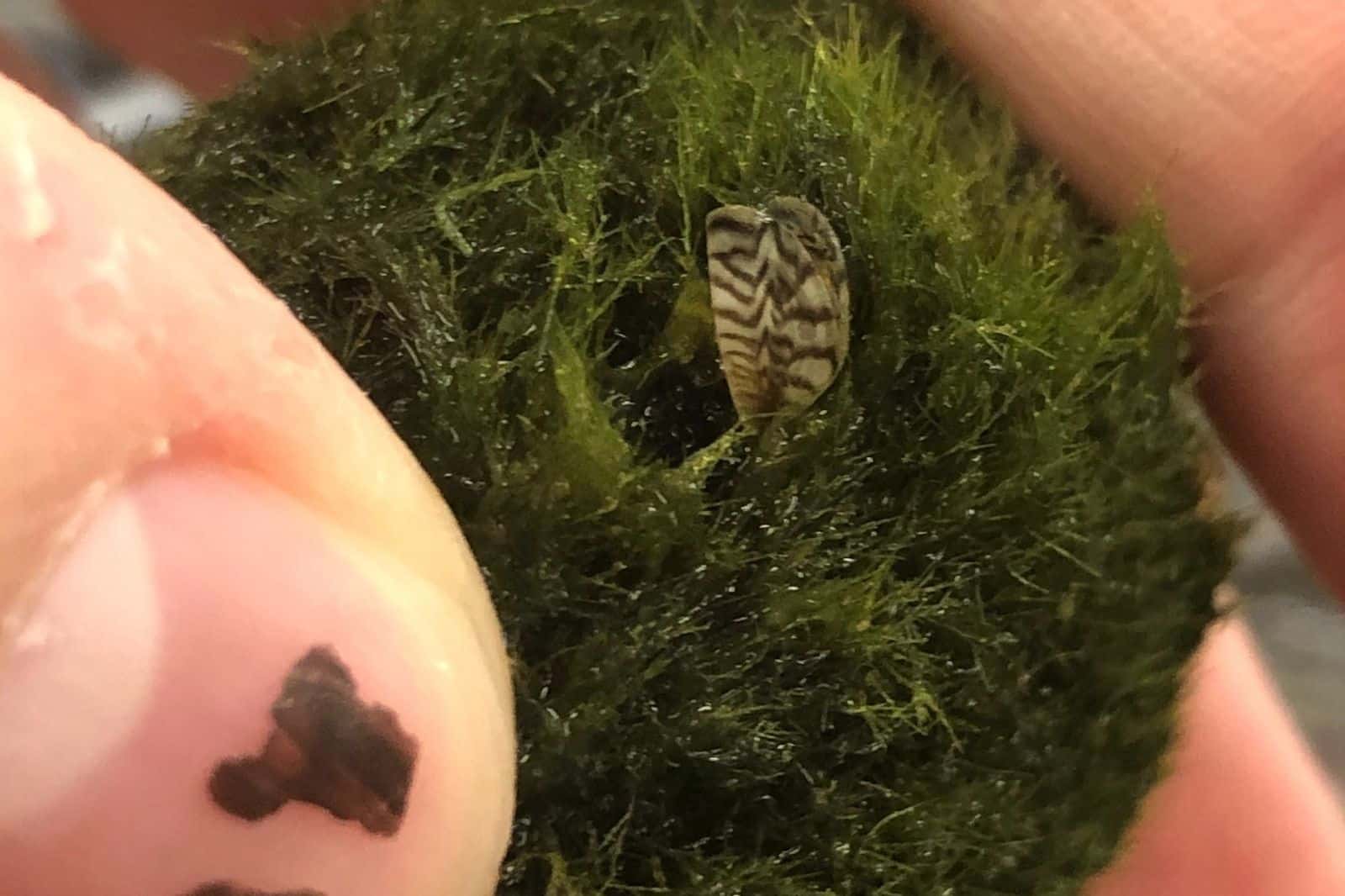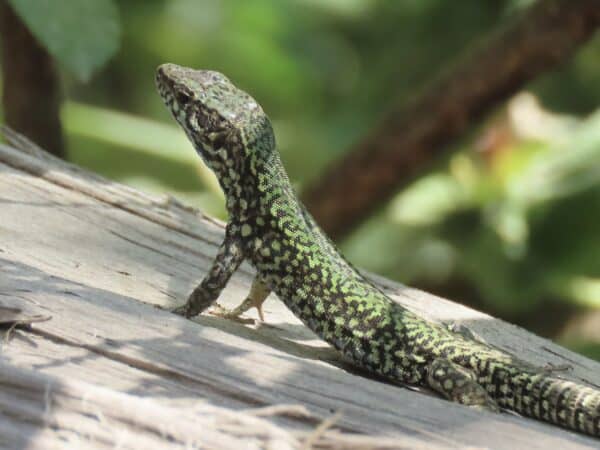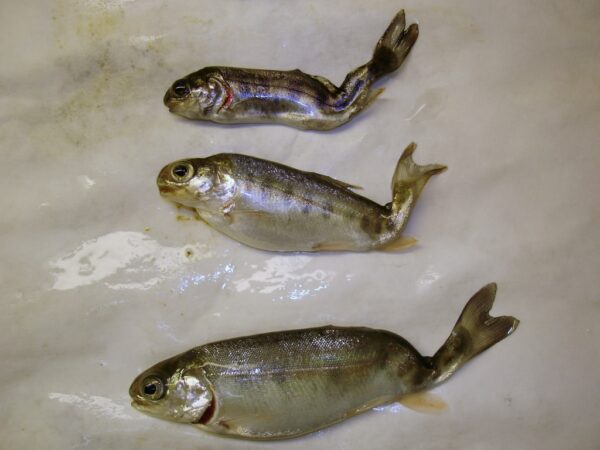Published: March 23, 2021
Aquarium owners advised to take immediate action
After invasive Zebra mussels were found in moss balls sold for aquariums in the US and Canada, extensive checks have discovered these invasive dangerous mussels in moss balls sold in many provinces and states. Aquarium owners across BC are urged now to immediately dispose of any moss balls and properly clean their aquariums so no invasive mussels or larvae can enter BC waters.
“This month Zebra mussels have been found in moss ball products sold in all corners of British Columbia, in the Northwest Territories, New Brunswick, Ontario, Quebec, Nova Scotia, Alberta, and Saskatchewan, so this problem is widespread,” says Gail Wallin, Executive Director of the Invasive Species Council of BC (ISCBC). “Every aquarium owner needs to carefully dispose of moss ball products responsibly, and should clean their aquariums with a strong solution of chlorine bleach and water to be sure no invasive species get into any water systems.”

Invasive mussels were first discovered in moss balls sold at pet stores across the US, then found in stores and home aquariums across Canada. If you find moss balls in your aquarium, the BC Conservation Officer Service advises to either:
- Place the moss ball into a sealable plastic bag and freeze for at least 24 hours, or
- Place the moss ball in boiling water for at least one full minute.
After this, place the moss ball and any of its packaging in a sealed plastic bag and dispose in the trash. Do not flush moss balls down the toilet or dispose of them in the compost. Never dump aquarium tank pets, plants or water into any residential water system or waterway.
To date, there has been no reported introduction of live Zebra mussels into BC lakes or waterways, but other invasive species have caused serious damage. Some of the most concerning invasive species were originally sold as pets or plants for water gardens and aquariums. For example, Goldfish released by pet owners have caused extensive damage in BC lakes. For more information on preventing the spread of invasive species like these, visit Don’t Let it Loose.
“Invasive species can cause enormous economic, ecological and social damage, so every one of us needs to do our part to prevent invasive species from spreading,” adds Wallin. “The extent of these moss balls is much wider spread than we first thought, so we encourage everyone to please speak with friends and local aquarium stores to help find other high-risk moss balls and report them immediately.”
Gail Wallin, Executive Director, ISCBC
Read the full press release.
Share





